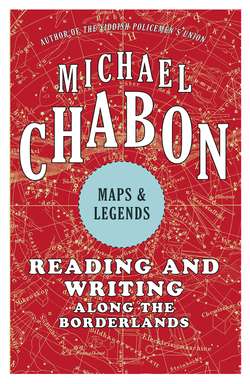Читать книгу Maps and Legends - Michael Chabon, Michael Chabon - Страница 10
ON DAEMONS & DUST
ОглавлениеP ITY THOSE—ADVENTURERS, adolescents, authors of young-adult fiction—who make their way in the borderland between worlds. It is at worst an invisible and at best an inhospitable place. Build your literary house on the borderlands, as the English writer Philip Pullman has done, and you may find that your work is recommended by booksellers, as a stopgap between installments of Harry Potter, to children who cannot (one hopes) fully appreciate it, and to adults, disdainful or baffled, who “don’t read fantasy.” Yet all mystery resides there, in the margins, between life and death, childhood and adulthood, Newtonian and quantum, “serious” and “genre” literature. And it is from the confrontation with mystery that the truest stories have always drawn their power.
Like a house on the borderlands, epic fantasy is haunted: by a sense of lost purity and grandeur, deep wisdom that has been forgotten, Arcadia spoilt, the debased or diminished stature of modern humankind; by a sense that the world, to borrow a term from John Clute, the Canadian-born British critic of fantasy and science fiction, has “thinned.” This sense of thinning—of there having passed a Golden Age, a Dreamtime, when animals spoke, magic worked, children honored their parents, and fish leapt filleted into the skillet—has haunted the telling of stories from the beginning. The words “once upon a time” are in part a kind of magic formula for invoking the ache of this primordial nostalgia.
But serious literature, so called, regularly traffics in the same wistful stuff. One encounters the unassuageable ache of the imagined past, for example, at a more or less implicit level, in American writers from Cooper and Hawthorne through Faulkner and Chandler, right down to Steven Millhauser and Jonathan Franzen. Epic fantasy distills and abstracts the idea of thinning—maps it, so to speak; but at its best the genre is no less serious or literary than any other. Yet epic fantasies, whether explicitly written for children or not, tend to get sequestered in their own section of the bookstore or library, clearly labeled to protect the unsuspecting reader of naturalistic fiction from making an awkward mistake. Thus do we consign to the borderlands our most audacious retellings of what is arguably one of the two or three primal human stories: the narrative of Innocence, Experience, and, straddling the margin between them, the Fall.
Any list of the great British works of epic fantasy must begin with Paradise Lost, with its dark lord, cursed tree, invented cosmology, and ringing battle scenes, its armored, angelic cavalries shattered by demonic engines of war. But most typical works of contemporary epic fantasy have (consciously at least) followed Tolkien’s model rather than Milton’s, dressing in Norse armor and Celtic shadow the ache of Innocence Lost, and then, crucially, figuring it as a landscape, a broken fairyland where brazen experience has replaced the golden days of innocence; where, as in The Chronicles of Narnia, it is “always winter and never Christmas.”
A recent exception to the Tolkienesque trend is Pullman’s series of three novels, The Golden Compass, The Subtle Knife, and The Amber Spyglass
